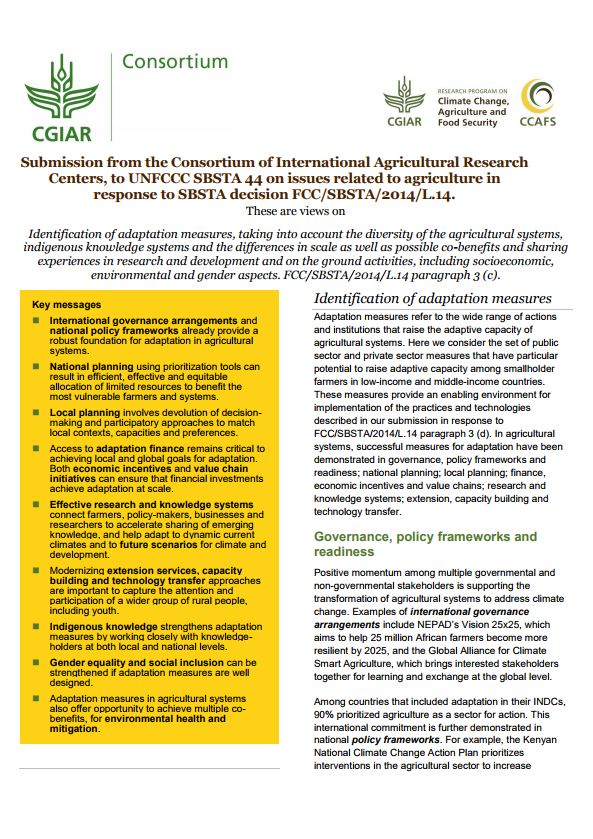Submission from the Consortium of International Agricultural Research Centers, to UNFCCC SBSTA 44 on issues related to agriculture in response to SBSTA decision FCC/SBSTA/2014/L
Abstract
International governance arrangements and national policy frameworks already provide a robust foundation for adaptation in agricultural systems. National planning using prioritization tools can result in efficient, effective and equitable allocation of limited resources to benefit the most vulnerable farmers and systems. Local planning involves devolution of decisionmaking and participatory approaches to match local contexts, capacities and preferences. Access to adaptation finance remains critical to achieving local and global goals for adaptation. Both economic incentives and value chain initiatives can ensure that financial investments achieve adaptation at scale. Effective research and knowledge systems connect farmers, policy-makers, businesses and researchers to accelerate sharing of emerging knowledge, and help adapt to dynamic current climates and to future scenarios for climate and development. Modernizing extension services, capacity building and technology transfer approaches are importan to capture the attention and participation of a wider group of rural people, including youth. Indigenous knowledge strengthens adaptation measures by working closely with knowledgeholders at both local and national levels. Gender equality and social inclusion can be strengthened if adaptation measures are well designed. Adaptation measures in agricultural systems also offer opportunity to achieve multiple cobenefits, for environmental health and mitigation.

